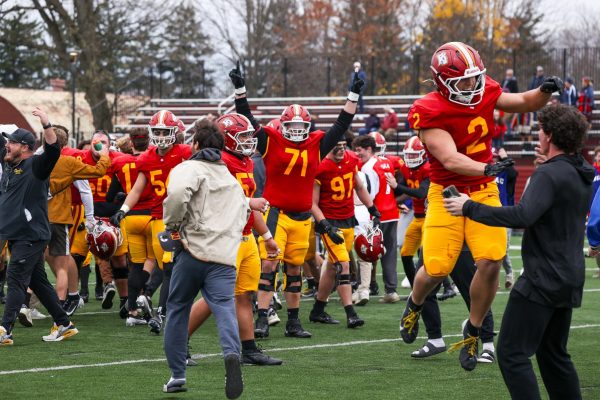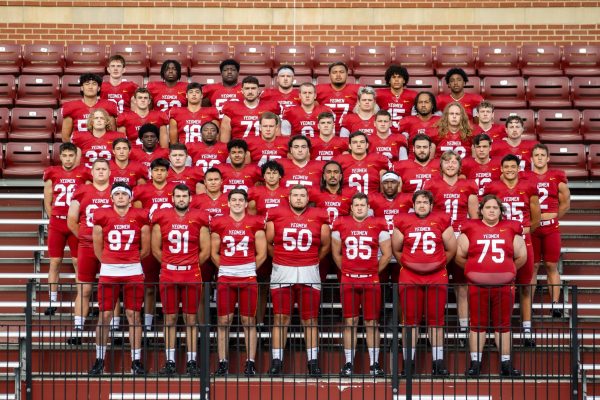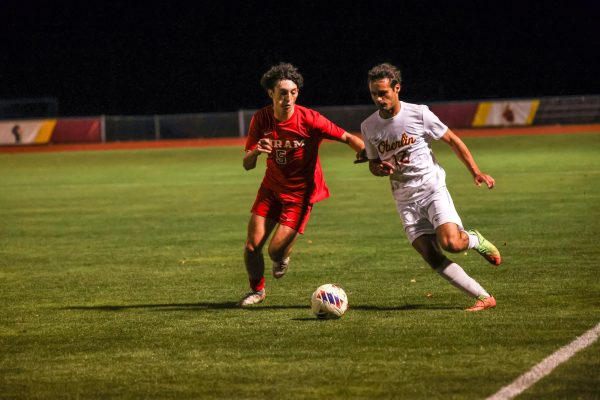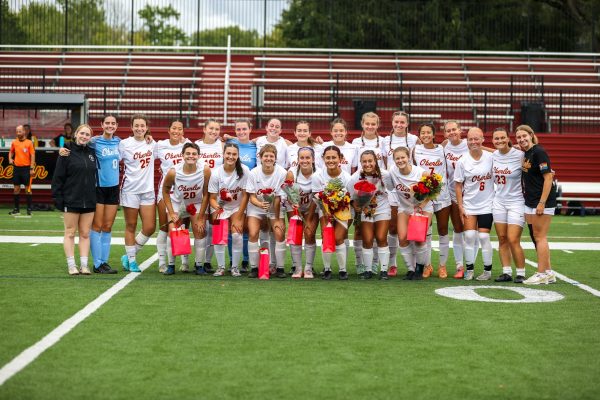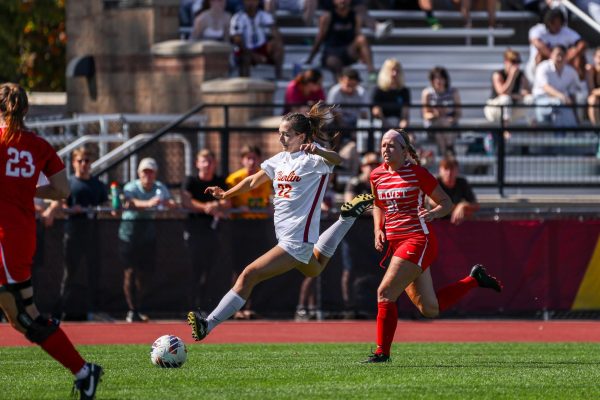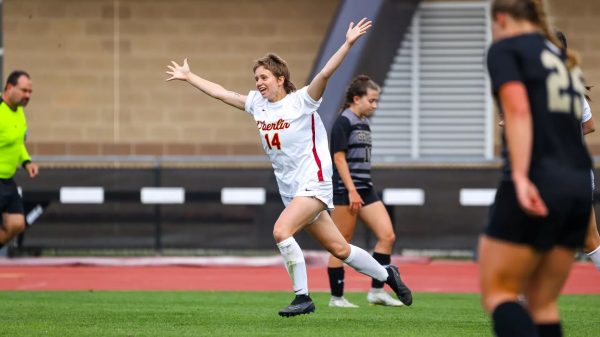All Talk: Varsity Athletes Go In On Trash Talk
College athletics are highly competitive and every athlete is unique in how they respond to and handle the tense moments that arise during competition. One method is a favorite among many: trash talk. While from the outside, players who trash-talk may appear to be letting the moment overwhelm them, for many, it can be a way athletes ground themselves and, at times, gain a competitive advantage.
The reason a player trash-talks is just as varied as how a player trash talks, with different players preferring different approaches.
“I usually try to refrain from trash-talking during lacrosse games because, [personally], I find it distracting to have verbal altercations with an opposing player,” said Josephine An, a College fourth-year and women’s lacrosse player. “However, there are a number of times when the opposing players get under my skin. … When players from the other team start to come at me, my temper causes me to talk back.”
While An is one example of an athlete who uses this type of talk only as a reaction to other events, College third-years and women’s soccer players Olivia Weeks and Sydnie Savarese are more proactive.
“I trash-talk to get in my opponent’s head,” Savarese said. “Also, … to refrain from taking out frustration on the refs.”
Savarese’s teammate echoes her belief that talking trash can be used to impact an opponent’s effectiveness on the field.
“Some players are really mental players and if you can get in their head a little bit, you can completely throw them off their entire game,” Weeks said.
While many athletes find merit and utility in trash talk, those who partake often employ different strategies.
“Some of the go-to themes I use are insults questioning the intelligence of the other player, since Oberlin is the most academically rigorous school in our conference,” An said, “[I also use] insults on their athleticism, like, ‘Wow, catch up. I’m not even in shape,’ and annoying, childish comebacks, like ‘I know you are, but what am I?’”
Some athletes like An are very specific in their approaches to trash talk, but others prefer a simpler approach.
“It isn’t usually that complex, to be honest,” Weeks said, “A classic is talking about [your opponent] to your teammate right in front of them. That always really pushes their buttons.”
At its core, trash-talk is intended to offend. Its purpose is to get under the skin of an opponent. However, for many athletes, there is a line.
“Something that is off-limits is mocking someone’s race, ethnicity, or sexuality,” Savarese said, “I think that making fun of someone’s physical appearance is also unacceptable.”
This opinion is shared by An, who feels as though there is a difference between trash-talk and disrespect.
“It is one thing to make some snarky remarks during play, but getting very personal and making fun of sensitive topics does not represent good sportsmanship and goes beyond the game itself,” An said.
Similarly to An, Weeks believes it is important to keep all aspects focused on the game.
“In my opinion, nothing needs to leave the topic of the game,” Weeks said, “There is no need to bring anything else on the field. If it happened off the field, leave it off the field. We’re all competitors and comments here and there are part of the game, but there’s no need to take it any further than that. Just be respectful.”
Many athletes would never do anything they feel is unacceptable when it comes to trash-talking. However, what is acceptable is up to the discretion of each individual. For example, when looking at how social media has affected the trash-talking landscape, both Savarese and An made it clear that any use of social media was off limits for them. For Weeks, it is more complicated.
“It’s different for different games,” Weeks said. “When my team is watching another [Oberlin sports] team’s game we will often times look up some stats or numbers on the other team to [trash-talk] them [from the stands]. But I never [use social media] for my own games.”
Not every athlete feels that social media is off limits. Spencer Caron, a College first-year and member of the football team, views social media as an important tool in gaining an advantage.
“I go on [opposing] player’s Instagrams and Twitters, so I can have some names [of opposing player’s family and partners] to throw out in game,” Caron said, “I just think learning names of people is kind of funny and also gets in their head a little bit.”
Despite crossing what some people may feel is a boundary, Caron made it clear that he has set limits for himself.
“I would never DM people,” Caron said, “I’ve heard of our players getting DM’d, but I don’t DM people. I would never say anything that I felt like crossed a line.”
Trash-talk has always been, and always will be, a very controversial topic. Some see it as an inevitable part of competition. Others view it as disrespectful and a clear lack of sportsmanship. For many athletes, it is just part of the game.
“I think that trash-talking is a natural part of playing a sport,” Savarese said, “As long as it’s not taken too far, then trash-talking can be fun for both teams.”


